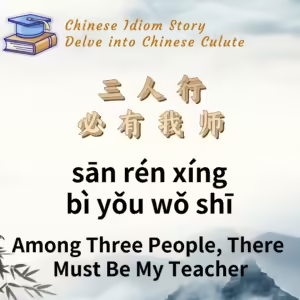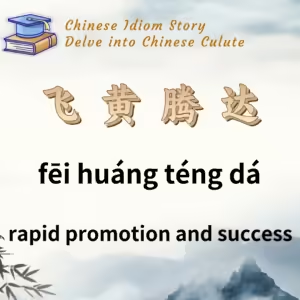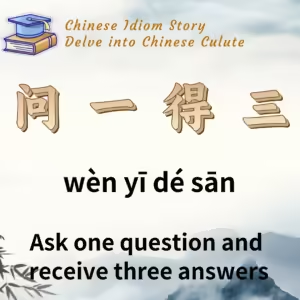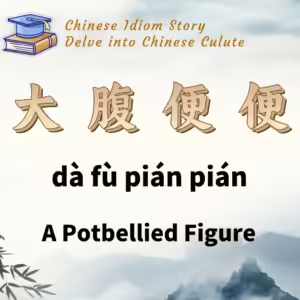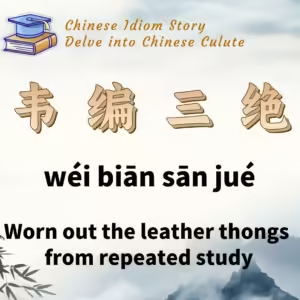
Chinese Idiom: 韦编三绝 (Wei Bian San Jue)
English Translation: Worn out the leather thongs from repeated study
pīn yīn: wéi biān sān jué
Idiom Meaning: Describes a person’s diligent and persistent study habits. It implies that one is so dedicated to learning that even the binding of their books wears out from frequent use.
Historical Source: “Records of the Grand Historian · The Lineage of Confucius” (《史记·孔子世家》)
Idiom Story
Confucius, the great educator, was known for his relentless pursuit of knowledge, even in his later years. According to the “Records of the Grand Historian,” Confucius developed a passion for studying the I Ching (《周易》) in his old age. The I Ching, consisting of 64 hexagrams and 384 lines, is a complex ancient text used for divination and embodies early dialectical thinking.
Understanding such an ancient text was no easy feat. Despite his advanced age, Confucius tackled this challenging work with unwavering determination. He read it repeatedly, and when he didn’t understand something, he would go over it again and again until he grasped its meaning.
The phrase “韦编三绝” refers to Confucius’s study of the I Ching to the extent that the leather thongs used to bind the bamboo strips of the book became worn out three times. This idiom highlights Confucius’s dedication and the intense effort he put into his studies.

